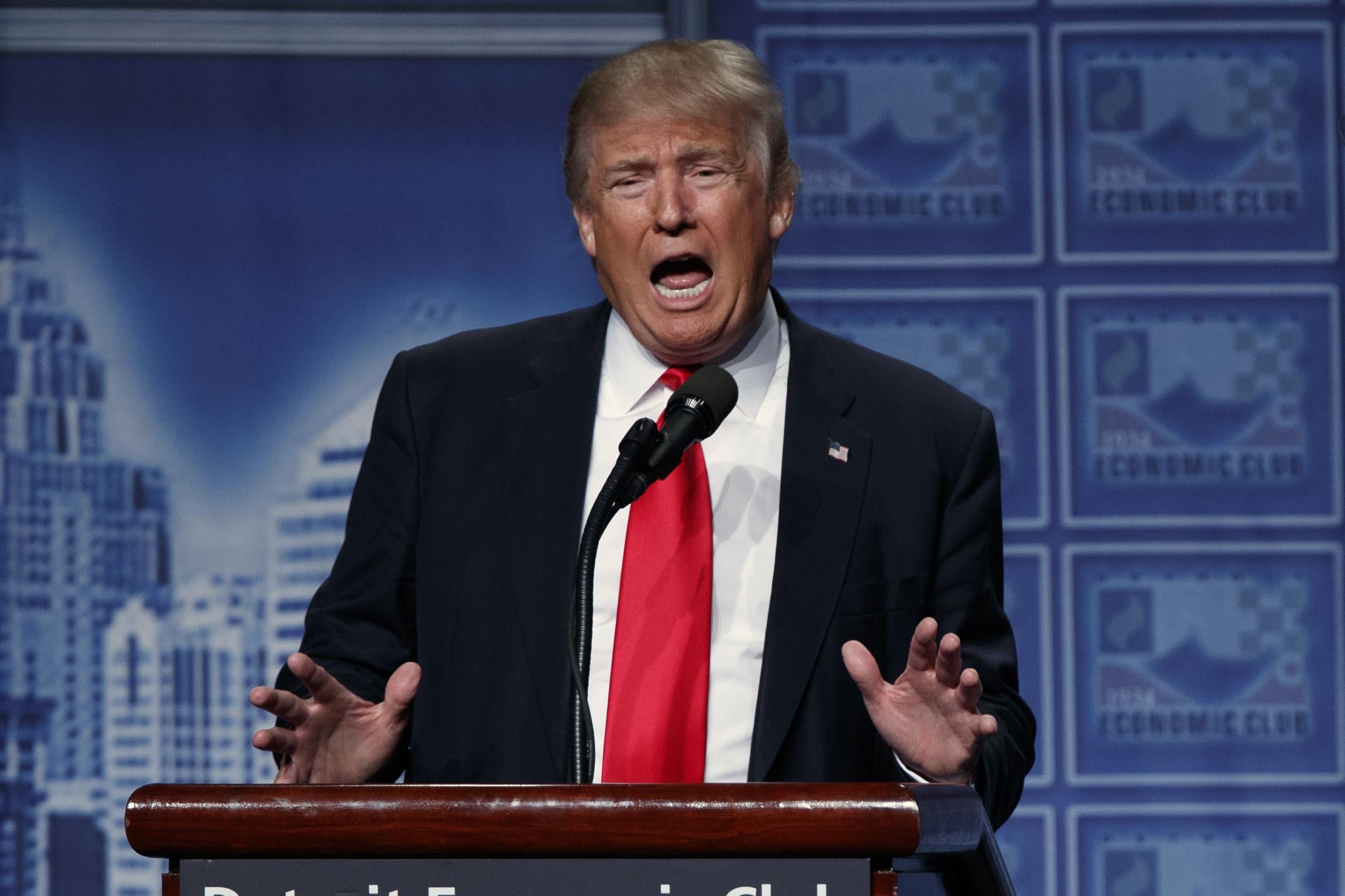Donald Trump last night filled in some of the blank spaces on the economy. In a speech in Detroit the Republican presidential candidate laid out his programme for “winning the global competition”. But what policies is he pushing? And does it add up?
Business tax
What?
Trumps wants to slash the tax on corporate profits to 15 per cent, down from 35 per cent.
Does it add up?
In theory such a move could encourage investment as it automatically lowers firms’ cost of capital. This might also encourage US multinationals to repatriate off-shore profits. Yet the profit margins of US firms are already high by historic standards and there is little evidence that heavy taxation is discouraging investment at the moment. Other factors such as lack of consumer demand and uncertainty over investment returns are likely to be much more significant factors.
Income tax
What?
Trumps wants to reduce the top rate of US income tax to 33 per cent, down from 39.6 per cent at the moment.
Does it add up?
Since the 1980s Republicans of all stripes have been convinced that cutting top income tax rates always increase high earners' effort and output so much that the cut will ultimately bring in more tax revenue than it loses upfront. The evidence suggests otherwise. Top rate tax cuts have tended to result in higher inequality, lower tax revenues and a bigger state deficit.
Estate tax
What?
This is the equivalent of UK’s inheritance tax - a 40 per cent tax applies on estates of the deceased larger than $5.45m for individuals and $10.9m for couples. Trump wants to repeal it.
Does it add up?
It is only paid by the very wealthy. Around 99.8 per cent of estates are not liable. So the tax’s repeal would be a large windfall to very rich American families, increasing wealth inequality further. Also, most of the very wealthy in the US successfully avoid the tax already through various loopholes.
Carried interest
What?
Trump proposes to scrap the special tax treatment on “carried interest”, which means the financial rewards of private equity and hedge fund financiers. This money is treated as capital gains and taxed at rates as low as 23.8 per cent. Tump says he will tax it as ordinary income, meaning it will be payable at a higher rate.
Does it add up?
This would actually be a sensible elimination of a much-abused and distorting loophole. Indeed, it’s a policy that has been long pushed by progressives, including Bernie Sanders.
Trade
What?
Trump is opposed to the Trans-Pacific Partnership trade agreement with Japan, Australia and some other Pacific rim nations. He also wants the existing North America Free Trade Agreement, covering Mexico and Canada, to be renegotiated. He claims he would appoint trade negotiators who will “win for America” and apply tariffs on countries that cheat.
Does it add up?
Evidence that some American jobs in certain locations and industries have been lost due to trade agreements and the greater competition they bring. But, overall, the US has seen jobs and incomes increase thanks to these deals. Protection might benefit some Americans – but overall the economy would be smaller.
Child care
What?
Trump proposes to exclude childcare expenses from taxation.
Does it add up?
Childcare is expensive in US. Research shows for families it is often a bigger individual expense than rent, transport and food – making it a disincentive for mothers to return to work. But a more efficient and effective solution than Trump’s private tax breaks (which wouldn't benefit workers who don't earn enough to pay income tax) might be an increase in government subsidised provision of childcare.
Deregulation
What?
Trump says regulation is a “lead-weight on the economy, an anchor dragging us down”. He would “remove bureaucrats who only know how to kill jobs [and] replace them with experts who know how to create jobs”, targeting 2.7 civilian federal employees.
Does it add up?
The US is one of the most lightly regulated economies in the world. There is little evidence that deregulation would produce a major boost in American productivity growth.

Join our commenting forum
Join thought-provoking conversations, follow other Independent readers and see their replies
Comments